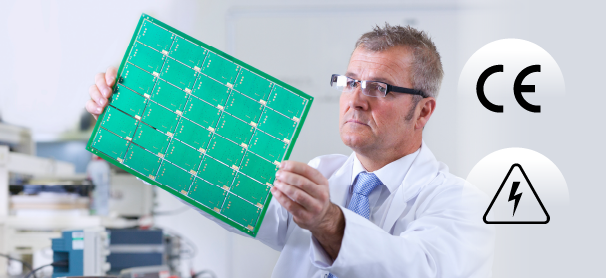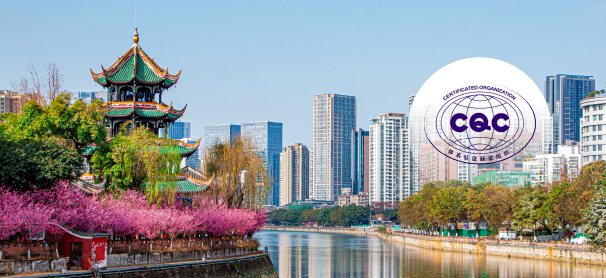Are you a manufacturer or distributor of telecommunication equipment dreaming of expanding your reach to the Chinese market? Then the Network Access License (NAL) certification might be your key to unlocking this exciting opportunity! But navigating the complexities of this regulatory requirement can feel daunting. 360Compliance is here to guide you through the NAL process smoothly and efficiently.
What is the Network Access License (NAL)?
NAL stands for Network Access License, a crucial certification required by the Chinese government for telecommunications equipment. It’s a mandatory license issued by the Ministry of Industry and Information Technology (MIIT) that ensures your product meets safety, technical, and interconnectivity standards.
Who Needs NAL Certification?
If you manufacture, import, or distribute telecommunication equipment intended for use in China, NAL is mandatory. This includes a wide range of products, from cell phones and modems to routers, switches, and even smart home devices with communication features.
The NAL Process
Obtaining NAL can seem complex, but with the right guidance, it becomes manageable. Our team specializes in guiding manufacturers and distributors through the intricacies of Chinese certification, including NAL approval. Here’s a simplified overview:
- Product identification: Determine if your equipment falls under NAL requirements.
- Technical Testing: Your equipment undergoes rigorous testing at accredited lab(like 360Compliance) in China to ensure compliance with relevant standards.
- Application and Review: Submit a comprehensive application package to MIIT, including test reports and technical documentation.
- Issuance of License: Upon successful review, MIIT issues the NAL certificate, allowing your product to connect to the Chinese network.
What Products Require NAL?
The list is extensive, encompassing various telecom devices like:
- Mobile phones
- Modems
- Routers
- Switches
- Antennas
- And more!
Benefits of NAL Certification:
- Market Access: Gain entry to the vast and lucrative Chinese telecommunication market, expanding your customer base and revenue potential.
- Peace of Mind: Avoid costly delays, fines, and market access issues with a smooth and compliant certification process.
- Consumer trust: The NAL label signifies quality and safety, boosting consumer confidence in your brand.
What is the Cost of NAL Certification?
Costs vary depending on product complexity and testing requirements. Contact 360Compliance for a personalized quote.
What is the Difference between NAL and SRRC?
SRRC certification focuses on product safety, while NAL ensures compatibility with China’s telecom networks. Both are often required for market access.
Why Choose 360Compliance For China NAL Approval?
Navigating the intricacies of China NAL certification can be challenging, especially for first-timers. 360Compliance is your one-stop shop for a smooth and efficient NAL journey. We offer:
- Turnkey Solutions: We handle the entire NAL certification process, from initial consultation to final label issuance, saving you time and resources.
- Expert Guidance: Our experienced team provides support and insights throughout the process, ensuring your application is complete and compliant.
- Global Network: We leverage our extensive network of accredited labs and regulatory bodies to expedite your certification.
- Competitive Pricing: We offer transparent and competitive pricing packages, ensuring value for your investment.
Contact 360Compliance today! We’ll help you navigate the NAL certification process with confidence, ensuring your telecommunication equipment is ready to thrive in the Chinese market.
Other Certifications

China CCC Certification
Are you a manufacturer or distributor looking to tap into the vast consumer market in China? If so, you've likely come across the term CCC Certification. One crucial step for many products is obtaining CCC China Compulsory Certification, also known as the 3C mark. We're here to demystify China CCC Compliance and show you how 360Compliance can be your trusted partner in navigating this process smoothly. What is CCC Certification? CCC Certification (also known as the 3C certification), short for China Compulsory Certification, is a mandatory process for products entering the Chinese market. It ensures that these products meet the necessary safety and quality standards set by the Chinese government, contributing to consumer protection and environmental safety. The CCC mark, a recognizable logo, is affixed to certified products, signifying their compliance with these standards. Why is CCC Marking Important? Without that precious China Compulsory Certificate Mark on your products, here's what you might face: Blocked imports: Your products simply won't be allowed into China. Fines and penalties: Non-compliance can lead to hefty fines and legal trouble. Reputational damage: Operating outside regulations can damage your brand image in China. Lost business opportunities: Unable to reach the vast Chinese market, your sales potential suffers. How to Get CCC Certificate? The CCC certification process involves several steps, including: Identify applicable standards: Determine the specific standards your product needs to meet based on the CCC product list. Product testing: Your product needs to be tested by accredited laboratories(like 360Compliance) in China to ensure it meets the relevant standards. Factory audit: An assessment of your manufacturing facility to verify your production processes comply with CCC regulations. Technical documentation: Preparing detailed technical documentation about your product and its manufacturing process. Application and certification: Once everything is approved, you'll receive your official CCC compliance certificate. Submitting your application and supporting documentation to the designated certification body. What Products Need CCC Certification? The good news is not all products require CCC mark certification. The Chinese government maintains a regularly updated China CCC product list, categorizing products subject to mandatory certification. You can consult with 360Compliance experts to confirm if your product falls under this requirement. Over 132 product categories require CCC certificate, including: Electrical appliances and equipment; Toys and childcare articles; Machinery and equipment; Building materials and fire safety products; Medical devices; Telecommunications equipment. And more! How Much Does CCC Certification Cost? The cost of CCC Certification varies depending on factors such as product complexity, testing requirements, and regulatory compliance. While it may seem daunting, investing in CCC Certification is an investment in accessing one of the world's largest consumer markets. Contact 360Compliance for a personalized quote. How long does CCC certification take? The process typically takes 60-90 days, but can vary based on specific circumstances. Why Choose 360Compliance For Chinese Compulsory Certification? Without CCC safety mark, your products simply cannot legally enter the Chinese market. This translates to lost opportunities and potential financial setbacks. On the flip side, obtain CCC approval demonstrates your commitment to quality and safety, boosting consumer trust and brand reputation. Navigating the CCC process can be complex, but 360Compliance Testing Labs is here to simplify your journey. We offer: Turnkey solutions: We handle the entire process, from initial guidance to final certification. Expertise: Our team of regulatory experts navigates the complexities efficiently. Global reach: We have offices and labs in the USA, EU, and Asia, ensuring seamless communication and support. Fast turnaround times: We prioritize your project, ensuring timely certification for quicker market access. Cost-effectiveness: We offer transparent pricing and fixed costs, minimizing surprises. Contact us today for consultation and let's discuss how we can help you achieve your China market goals!
Learn more
CE LVD Certification
What is CE LVD Certification? CE LVD Certification, governed by the Low Voltage Directive 2014/35/EU, is a critical quality assurance process for manufacturers seeking to market their electrical products in the European Union (EU). The acronym "LVD" refers to the Low Voltage Directive, initially adopted in 1973 and subsequently amended to set stringent rules for the quality testing of electronic tools. The primary objective of CE LVD Certification is to ensure the safety of electrical equipment sold within the EU. It is a mandatory requirement for all manufacturers, importers, and distributors, covering a broad spectrum of products from AC adapters to household appliances. The certification process involves adherence to specific technical standards issued by the International Electrotechnical Commission (IEC) and includes comprehensive documentation, design specifications, and conformity testing. The CE LVD Certification is represented by the CE mark, which indicates compliance with safety regulations and allows market access in the EU. Which Products Need LVD CE Certification? Compliance testing under the Low Voltage Directive 2014/35/EU is mandatory for electrical items falling within the voltage limits of 50 – 1,000 volts for AC gadgets and 75 – 1,500 volts for DC gadgets. Obtaining the CE certification for the Low Voltage Directive is crucial to ensure compliance with EU regulations for product safety. This certification is particularly relevant for products that fall within the scope of electrical equipment operating within specific voltage limits. Here is a list of products that commonly require LVD CE certification: Consumer Electronics: Devices such as smartphones, laptops, and tablets. Power Supplies: Devices providing electrical power, including power adapters and chargers. Household Appliances: From kitchen appliances like blenders and toasters to larger devices like washing machines and refrigerators. Lighting Products: Whether it's traditional light bulbs or modern LED fixtures. Power Tools: Electric drills, saws, and other power tools. Industrial Machinery: Electrical machinery used in industrial settings, such as manufacturing plants. Audio and Video Equipment: Products like amplifiers, speakers, and televisions. IT Equipment: Servers, networking equipment, and other information technology products. Electrical Toys: Children's toys that include electrical components or operate on electricity. Automotive Electronics: Certain electrical components and systems that are present in vehicles, such as navigation systems and entertainment units. Which products are not covered by the LVD? There are some exceptions and specific types of equipment that fall outside the scope of the LVD. Here are examples of products generally not covered by the LVD: Equipment for Special Purposes: Electrical equipment designed for certain specific applications, such as explosive atmospheres, medical devices, and military equipment. Aircraft and Aerospace Equipment: Electrical equipment intended for use in aircraft and aerospace applications. Radio and Telecommunications Terminal Equipment: Equipment covered by the Radio Equipment Directive (RED) and the Electromagnetic Compatibility Directive (EMC) falls outside the scope of the LVD. Plugs and Socket-Outlets for Domestic Use: These are excluded from the LVD and may be subject to other standards or regulations. Custom-Built Evaluation Kits for Professionals: Products designed for professionals for research and development purposes, provided they are not intended for end-user markets. How to Pass the LVD Certification: To obtain LVD certification, companies must submit comprehensive technical documentation outlining the device, its design, manufacturing process, and operational principles. Products are subject to conformity tests, including: humidification, ball pressure, insulation resistance, glow wire, power measurement, needle flame, air conditioning, warming, mechanical, leakage current. Companies can ensure a smoother certification process by seeking expert advice to navigate complexities and ensure adherence to safety regulations. Why Is a CE Low Voltage Mark Important? The CE Low Voltage Mark is a visual indication that your electrical equipment complies with the essential safety requirements of the Low Voltage Directive. This mark is a testament to the quality and safety of your products, instilling confidence in both consumers and regulatory authorities. It opens doors to international markets by demonstrating that your products meet the stringent safety standards set by the European Union. At 360Compliance, we understand the importance of CE LVD Certification for your business. Let us be your partner in achieving compliance, and ensuring the safety and success of your electrical products in the global market. Explore our services today and embark on a journey to certification excellence. Contact us to achieve CE LVD Certification.
Learn more
CQC Certificate
Are you a manufacturer or distributor seeking to penetrate the Chinese market with confidence? Delve into the realm of CQC certification and discover how it can propel your business forward. 360Compliance will guide you through every step, from initial consultation to final certification. What is CQC Certification? CQC certification is a quality mark granted by the China Quality Certification Centre, established by the Chinese government. It aims to evaluate and ensure the compliance of products with Chinese national standards and regulations. Essentially, it's a stamp of approval that signifies a product meets rigorous quality and safety standards set by China. Benefits of CQC Certification Increased trust and confidence: For consumers, seeing the CQC mark means they can be more confident in a product's quality and safety. For businesses, it shows they prioritize quality and adhere to regulations. Improved market access: CQC certification can help businesses gain easier access to the Chinese market, especially for mandatory products. It can also open doors to other international markets that recognize CQC standards. Enhanced brand reputation: Demonstrating commitment to quality through certification can boost a brand's image and reputation, attracting more customers and partners. Who Needs CQC Certification? While voluntary, CQC testing is particularly beneficial for: Manufacturers exporting products to China: It simplifies market entry and compliance with regulations. Companies seeking to enhance brand image and reputation in China: The CQC mark is a visible symbol of quality and trust. Businesses aiming to differentiate themselves from competitors: CQC China certification sets you apart as a quality-focused brand. Navigating the CQC Process Identify the applicable standards: Different products require compliance with different CQC standards. Research and identify the relevant ones for product. Choose the right certification type: CQC offers various types of certifications, such as the CQC Mark Certification and the CCC (China Compulsory Certification). Choose the one that best suits your product and needs. Prepare technical documentation: Gather necessary documents like product specifications, test reports, and factory inspection reports. Testing and inspection: Your product may undergo testing by accredited laboratories(like 360Compliance) to ensure compliance with the standards. Certification issuance: Once your product meets all requirements, CQC will display the CQC certificate logo. What types of products can be certified? While not always mandatory, CQC approval is essential for a wide range of products, including: Electrical and electronic equipment Machinery and construction materials Toys and childcare articles Medical devices Food and agricultural products Textiles and clothing What about CQC Certificate Costs? Costs vary based on your product type, complexity, and testing requirements. Expect a range of $500 to $5,000 for most products. Why Choose 360Compliance for China Quality Certification? Navigating CQC can be complex, but with 360Compliance, you have a trusted partner by your side. We offer: Comprehensive guidance: Our experienced team will help you select the right CQC scheme, navigate the application process, and answer your questions. Seamless testing: Our accredited laboratories conduct rigorous testing to ensure your products meet all CQC requirements. Factory audit support: We prepare your facility for the audit and ensure a smooth and successful inspection. Turnkey solutions: We handle the entire process from start to finish, saving you time and resources. Ready to unlock the vast potential of the Chinese market? Contact 360Compliance today to guide you through the CQC process with confidence!
Learn more

